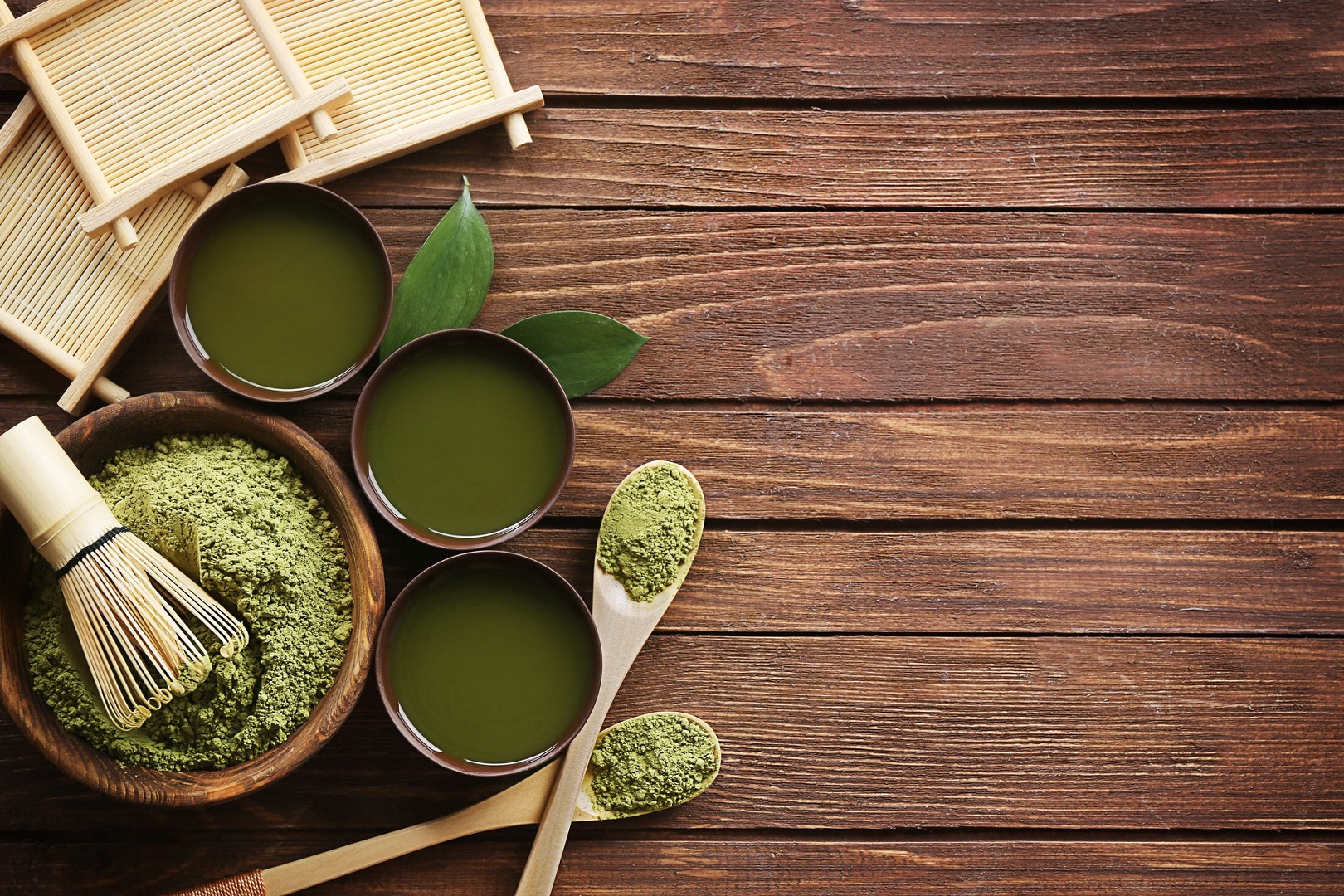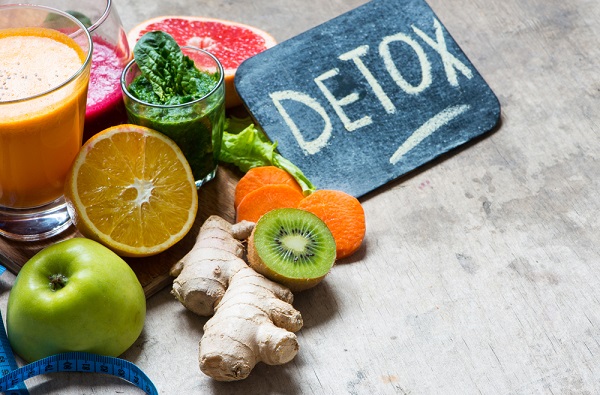
|
Contents |
If you are planning to detox your body, it can leave you to feel low, as your body is eliminating the toxins. This feeling you are experiencing is perfectly normal and it is not a sign that you are getting sicker. Experiencing these symptoms are a good sign. It means that the program is working and the body is working to establish a new level of well-being.
Want Trusted Practitioner Referrals For Your Health Condition Now?
Click the button below to get free referrals for the leading practitioners on Natural Therapy pages now. 100% Secure & Easy. Over 1.2M referrals made so far.
Dietitians, nutritionists and doctors recommend that when planning to undertake a detox, it should be in conjunction with a healthy eating plan. Read this article to find out everything to be expected when you are detoxing, and the strategies you can use in dealing with the symptoms.
What is a Detox?
Let us first understand what a detox is. The primary goal of a detox diet is to purge foods, usually the unhealthy ones, from your diet and to focus on limited intake of high value nutrients. Oftentimes, these detoxes target to eliminate specific items from your daily routine which include caffeine, nicotine, and refined sugar. By eliminating these toxins that have built up from our lifestyle and diet, it will help you to feel healthier and more energised. Other people also undertake a detox to lose weight with a specific regime of often liquids which include juices, soups, and teas.
Why Detox?
A detox diet offers an array of benefits, ranging from losing weight and boosting energy levels to optimising your internal organs and warding off chronic disease. It's no different from spring cleaning, except that you'll be performing a thorough cleansing of your body instead of your house.
Removing toxic substances that have accumulated in your body lowers blood pressure, improves liver function, addresses brain fog and enhances mood. It can also help relieve rashes and other skin conditions, flush out dirty fluids that cause inflammation and prevent all sorts of illnesses.
What are the Different Types of Detox?
Our bodies follow a natural detox process. Unfortunately, it fails to work sometimes due to poor diet, lifestyle and environmental factors. There are different types of detoxification programs that can support your body in removing waste products that hinder it from functioning the way it should. Some of these stimulate the internal organs with herbs and natural supplements, while others regulate the process of expelling toxins in the body through urine, feces and sweat.
Following a detox program allows your body to take a break from certain foods that contribute to toxic build-up. If you're wondering which detox program to go for, check out the list below:
Juice cleanse
This type of detox diet involves drinking freshly squeezed extracts from fruits and vegetables. It cleanses and optimises the colon, liver, kidneys, gallbladder, lymphatic system and skin.
Liver detox
The liver plays an important role in the digestive system, hence must be kept strong and healthy at all times. A liver cleanse involves the consumption of green, leafy vegetables, grains, seeds, herbs and a potassium supplement to support the organ's function of flushing out toxins through urine and feces.
Colon cleanse
A colon cleanse helps support bowel movement. It involves the introduction of filtered water with herbs, vitamins, enzymes and natural supplement into the large bowel through the rectum to flush out hardened stool.
Herbal detox
If you're aiming to lose weight, go for herbal detoxes. These consist of natural herbs that gently sweep out toxins, reduce blood sugar levels and revive the functions of the organs in the digestive system.

Detox vs. Withdrawal
Detoxification and withdrawal may seem to be one and the same, but they are actually two different things. As you start eating better and your body adjusts to healthier habits and high-quality foods, it begins to eliminate waste products. This process may bring about feelings of discomfort, otherwise known as detox symptoms, which include lightheadedness, low energy levels and frequent urination.
This is a clear indication that your body is doing its job of getting you back into shape, and shouldn't worry you. Just get a lot of rest, and you'll regain your energy in no time. Maintain a light diet which consists of easily digestible foods, and don't forget to drink plenty of water.
Now onto the withdrawal symptoms of detoxification. Cravings for foods, or substances, which your body used to take in but has eliminated are common signs of withdrawal. Let's say you used to drink alcohol but have decided to quit cold turkey, you may experience an alcohol withdrawal syndrome. During this phase, you may feel irritable and nauseous, but you'll feel better after a few days.
The severity of the withdrawal symptoms depends on how you approach the detoxification process. Let's say you used to dislike vegetables, and then decided to turn into a pure vegan in less than 24 hours, eating nothing but vegetable salad and herbs, then you're more likely to succumb to cravings and other withdrawal symptoms. But if you go through the cleansing process step by step, you're less likely to suffer the discomfort of withdrawal.
The Detox Process
Once you have decided to undergo a detox, the first thing to do is minimise your consumption of toxic foods and substances. These could range from refined sugar and alcohol to caffeine and saturated fats. Although quitting overnight is ideal, it is just plain impossible.
You have to align your thoughts and feelings to be able to achieve your goals for your physical body in baby steps. It's very important that you don't stress yourself out if you don't meet your goals right away. Everything, including good health, takes time to achieve.
Common Detox Symptoms
As your body goes through the process of eliminating toxins and purifying itself, there are a number of symptoms created while detoxing. Some of these symptoms commonly experienced include:
- Headaches
- Lethargy
- Temporary muscle aches
- Mucus or other discharge
- A coated, pasty tongue
- Flu-like symptoms
- Irritability
- Difficulty sleeping
- Weakness
- Cravings
- Nausea
- Constipation
- Diarrhea
- Gas
- Rashes
- Low energy levels
- Frequent urination
While you are in the detoxing process, you may suffer old symptoms that you had before. There are times that you might think of becoming ill but it is important to continue with the detox and do not take any medications to help with the withdrawal symptoms. The aim of detoxing is to flush the chemicals out of the body, not introduce more!

Withdrawal Syndrome & Withdrawal Symptoms
Cutting out certain foods and substances from your diet may lead to different withdrawal symptoms, which eventually go away in a few days once your body has adjusted to clean eating. You may experience occasional headaches, anxiety, irritability and cravings. Manifesting two or more of these symptoms for an extended period is indicative of withdrawal syndrome. This condition is more common in heavy drinkers who are detoxing than in people who are gradually cutting down on unhealthy foods like sugary drinks.
Coping With the Symptoms of Detox
When the body is trying to expel toxins at a faster rate, you can experience a healing crisis.
Your healing crisis may be more severe if your system is more toxic. Healing crises, during the detoxification process, are characterised by a temporary increase in symptoms. Symptoms of this immune response typically include fever, chills, and flushing. For a time, you may actually feel worse and may conclude that the detox diet is not working. However, the symptoms are signs that the detox program is effective and the body is cleaning and repairing itself of all the toxins. This reaction is only temporary and usually lasts from one to three days.
There are coping strategies that can help you manage the symptoms of the healing crisis, and these include the following:
Drink plenty of fluids
Drinking plenty of liquids, especially fresh water, will help you to flush the toxins out of your body. It is best to drink pure water rather than tap water. Bottled spring water is preferable to ensure you're not introducing waterborne diseases into your body. Aim for at least six to eight glasses of water per day. If you are feeling tired or lethargic, this is your body's way of telling you to take a rest.
Use herbs, herbal supplements & other herbal remedies
Taking herbal teas, not to mention adding fresh herbs to your soups and casseroles, will not only expedite your body's cleansing process but also boost your immune system. Herbs are naturally diuretic, allowing your body to wash out waste products faster by urinating more. They also support the lymphatic system's detoxifying abilities, as well as strengthening the liver.
Some herbs to consider during detox are garlic, turmeric, dandelion root and roselle as they support the functions of the liver and kidneys. On the other hand, herbal supplements that contain cilantro, rhubarb root, licorice and chamomile can help lubricate the colon and prevent constipation.
Take hot showers
Taking hot showers during a detox can be very helpful. Have the water as hot as your body can stand it and scrub your skin well. Hot showers may help in eliminating toxins through the skin. Also, do not eat too much during the healing crisis. You should only eat light meals and food that are easy to digest. You should also increase the amount of fibre intake and when advised, take supplements that help cleanse the kidneys and colon.
Relax & meditate
Meditation will help you cope better with the emotions and mood swings that you may be experiencing during the healing crisis. Engage in mind-body interventions like yoga, qigong and tai chi to relax your muscles and stimulate your organs to function normally. In doing so, you allow your body to release toxins naturally without suffering the symptoms from a detox.

An Alternative to Detoxing
Many dietitians are actually advocating for you to avoid the regimented detox diets, but focus instead on a well-balanced diet, with whole grain foods, fruits, and vegetables. Also, do not forget to include regular exercise in your lifestyle, which would help you to feel better and more energised.
You should also cut the following out from your diet and lifestyle: smoking, too much alcohol, coffee, foods that are high in fat, sugary drinks and processed foods. These are all guaranteed to drain your energy.
How Do You Know If a Detox is Working?
-
Increased energy levels: Feeling more energetic and less sluggish can be a sign that your body is adjusting to a healthier lifestyle.
-
Improved digestion: Some detox programs focus on consuming more fiber-rich foods, which can promote better digestion and bowel movements. If you're experiencing regular bowel movements and less bloating, it could be a sign that your detox is working.
-
Clearer skin: A healthier diet can lead to an improvement in skin health. If you notice a clearer complexion, it could be an indicator that your detox is having positive effects.
-
Weight loss: A detox may result in weight loss due to reduced calorie intake and increased consumption of whole, unprocessed foods. This, however, is not guaranteed and could also be a result of water weight loss.
-
Better mental clarity: Some people report improved mental clarity and focus during and after a detox program, which can be a sign of positive changes.
-
Improved sleep: A healthier lifestyle may lead to better sleep patterns, which can be an indicator that the detox is working.
It is crucial to remember that many of these signs can also be attributed to adopting a healthier lifestyle in general, not specifically to a detox program. Additionally, detoxes are not a substitute for a balanced diet and regular exercise, which are essential for maintaining overall health. Before starting any detox program, it is recommended to consult with a healthcare professional to ensure it is safe and appropriate for you.
Potential Risks and Side Effects of Detoxing
While detoxing can have benefits for many people, it is important to be aware of potential risks and side effects. Here are some things to keep in mind:
- Some detox programs may be too restrictive or low in calories, which can lead to nutrient deficiencies and other health problems.
- Rapid weight loss from detoxing can also lead to muscle loss and a slower metabolism.
- Detox programs that involve laxatives or diuretics can cause dehydration, electrolyte imbalances, and other digestive problems.
- Individuals with certain health conditions, such as liver or kidney disease, should avoid detox programs altogether or consult with a healthcare provider before starting.
- Some detox programs may interfere with medication absorption or effectiveness.
It is important to consult with a healthcare provider before starting any detox program and to listen to your body throughout the process. If you experience any negative symptoms, such as dizziness, nausea, or extreme fatigue, stop the detox and seek medical advice.
Evidence-based Benefits of Detoxing
While more research is needed to fully understand the benefits of detoxing, there is some evidence to suggest that it can be beneficial for certain health conditions. Here are some examples:
- A study published in the Journal of Alternative and Complementary Medicine found that a 21-day detox program improved liver function and reduced inflammation in healthy individuals (1).
- Another study found that a 7-day juice fast improved antioxidant status and reduced oxidative stress in healthy individuals (2).
- Detox programs that include dietary changes and stress reduction techniques have been shown to improve quality of life and reduce symptoms in individuals with chronic fatigue syndrome (3).
- Detox programs that include dietary changes and supplementation with specific nutrients, such as zinc and vitamin C, have been shown to improve symptoms in individuals with lead toxicity (4).
Importance of a Balanced Diet
While detoxing can be beneficial for many people, it is important to remember that a balanced diet is essential for overall health and wellbeing. A diet that is too restrictive or low in nutrients can lead to nutrient deficiencies, muscle loss and other health problems.
To maintain a balanced diet while detoxing, it is important to:
- Focus on whole, nutrient-dense foods such as fruits, vegetables, whole grains, lean protein, and healthy fats.
- Avoid highly processed foods, sugary drinks, and excessive amounts of caffeine and alcohol.
- Stay hydrated by drinking plenty of water and other fluids.
- Consider working with a registered dietitian or other healthcare provider to ensure that your dietary needs are being met during the detox process.
Overall, detoxing can be a useful tool for improving health and wellbeing, but it is important to approach it with caution and to prioritize a balanced diet and overall healthy lifestyle.
References:
- Lamprecht M, Bogner S, Schippinger G, et al. Probiotic supplementation affects markers of intestinal barrier, oxidation, and inflammation in trained men; a randomized, double-blinded, placebo-controlled trial. J Int Soc Sports Nutr. 2012;9:45.
- Ghanavati R, Majd HA, Nabavi SM, et al. Antioxidant and oxidative stress status of plasma and liver after a 7-day intake of mixed fruit and vegetable juice in healthy human volunteers. Afr J Pharm Pharmacol. 2012;6(16):1226-1230.
- Castro-Marrero J, Saez-Francas N, Segundo MJ, et al. Effect of a multivitamin and mineral supplement on infection and quality of life in individuals with chronic fatigue syndrome. J Hum Nutr Diet. 2015;28(6):613-621.
- Patrick L. Lead toxicity part II
- Larson-Meyer DE, Palm S, Bansal A, et al. Effects of intermittent fasting and chronic exercise on thyroid hormone status in men. J Endocrinol Invest. 2019;42(1):71-81.
- Selhub EM, Logan AC, Bested AC. Fermented foods, microbiota, and mental health: ancient practice meets nutritional psychiatry. J Physiol Anthropol. 2014;33(1):2.
- Windham GC, Hopkins B, Fenster L, Swan SH. Prenatal active or passive tobacco smoke exposure and the risk of preterm delivery or low birth weight. Epidemiology. 2000;11(4):427-33.
- Skibola CF, Smith MT. Potential health impacts of excessive flavonoid intake. Free Radic Biol Med. 2000;29(3-4):375-83.
- van der Meer AD, van den Bosch T, Pieters R, et al. The impact of detoxification on pesticide levels in human blood: a systematic review. Toxicol Lett. 2017;280:216-225.
- Jiao J, Xu JY, Zhang W, et al. Detoxification and regeneration of liver cells by schisandrin B through regulation of cell death and survival signals. Mol Med Rep. 2017;16(4):4665-4673.
|
Do you have a natural health & wellness business? |










